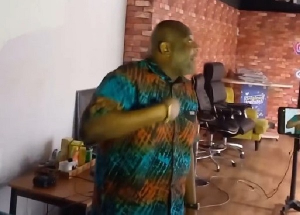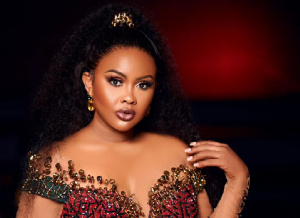This piece comes as a result of an interview I had with the founder of the Right to Dream Academy, Tom Vernon a few months ago. Actually we were talking about youth development in football and he came up with a suggestion.
The suggestion was that members of the senior national football team, the Black Stars, should be made to give up part of their appearance fees or match winning bonuses so that the accumulated funds would go into aiding effective grassroots football training in this country.
Even though it was a suggestion that would not go down well with the players and indeed, the movers and shakers at the Ghana Football Association, perhaps it is time to take a look at how much is paid to players of the Black Stars team.
Past members of the national team would tell you that back then, playing for the Black Stars was more about pride than about income.
At the time, so many players were in top form that selection into the squad was difficult; never mind selecting the first eleven.
Paradoxically, Ghana did not qualify for the World Cup until 2006 and the Black Stars have since become a global brand.
Getting into the team now is almost impossible unless you are playing abroad and doing very well. Even then, it becomes difficult unless you either have ‘godfathers’ within the GFA, or you utilize a well-driven Public Relations machinery.
I believe that I can say on authority that the Black Stars receive one of the highest levels of match winning bonuses or appearance fees in the world; never mind Africa.
When the team’s headline sponsors, Ghana National Petroleum Corporation (GNPC) decided to increase the bonuses from $10,000 to $15,000 per player late last year, there was a lot of hue and cry about it, especially with the prevailing economic conditions in the country at the time.
Indeed, things have worsened economically since then, but the financial rewards for playing for the Black Stars are enormous, now that the team is going to Brazil for the World Cup.
The questions I would like to ask are these: Are we not paying too much money to the Black Stars? Has playing for the Black Stars become a matter of life and death as far as money is concerned or is playing for the team still a source of national pride?
Indeed, are the right players being selected for the team or is it a case of ‘whom you know’? Let me take the liberty of comparing our situation with Nigeria, the most populous state in Africa.
The Nigeria Football Federation paid members of the Super Eagles $5000 each as match winning bonuses during the qualifiers, but the players managed to get the team to the World Cup this year and have put in some good performances as well.
Even so, after making it out of the first round, the team began complaining about their bonuses and eventually lost to France. Maybe France was a better team, but the focus on money might have led to a lack of focus on football.
My information is that the England national team receives bonuses in the region of £3000 per player and most of the time, the players donate the money to selected charities. In short, in most countries, playing for the national team is a real source of pride, but in Ghana what do we see?
I was reliably informed that the players rely on the match winning bonuses to give members of their extended families money. As a result, a player would come down to play for Ghana, his family members mass around him and he would have to give up most of his match winning bonus, which is also paid in cash, instead of into the players’ accounts.
A few players have ended up either misplacing money or having money stolen, as it happened to Awal Mohammed during the 2013 African Nations Cup. Now that the Black Stars are on $15,000 per player (match winning bonuses) during competitions why indeed can they not give back by setting aside say $5000 of the amount?
For instance, for a match the expenditure on the players as per bonuses would come to a total of $270,000. If $5000 per player is set aside, that is a tidy sum of $90,000. Would it not be good to set aside this sum of money to help develop football at grassroots level in Ghana?
The President of the Ghana Football Association, Kwesi Nyantakyi told me at the time Vernon made his suggestion that he would broach the idea to the players, but predictably, the players didn’t respond favorably.
In my opinion however, the GFA should make it mandatory. Otherwise, the perceptions (true or not) about other persons benefitting from the bonuses will continue to fly about.
In my years of working as a journalist, I used to think that the coaches have the final say when it comes to selecting players into the national team, but apparently people think that guys like myself also have influence.
Some months ago I was transacting some business somewhere when someone approached me and said he wanted to talk to me. He then mentioned a Belgium-based player as his brother and asked me if I could help him get into the Black Stars.
Fortunately I monitor Ghanaian players across the world and the said player was not playing regularly for his club at the time. So I told the player’s brother that he should rather advise the player to either leave the club or work hard in training to play regularly.
Since then, that player has moved on and is a regular for Malmo FF. I refer to Enoch Kofi Adu.
Before the 2010 World Cup, people actually came to my office at the time at Metro TV to ask for my help in getting another player into the Black Stars. The player, who is a defender, wasn’t playing at all at his club at the time.
I told the people that even if I had the power, which I didn’t, I would never speak on his behalf until he is playing regularly.
The said player eventually got playing time and is now a key member of the Black Stars, based purely on his own form. I am talking about John Boye. So you see, I had nothing to do with his eventual entry to the Black Stars.
Such approaches only strengthen the perception that not all players are selected on merit and indeed, there are allegations that certain players pay money just to be part of World Cup squads.
As to who allegedly receives the money, only God knows. Simply put, entry into the Black Stars has become monetized and that is the primary motivation, allied with the potential of corruption with respect to selection.
We all saw that happened when the players fought to get $100,000 each by way of appearance fees at the 2014 World Cup and the after effects proved disastrous for the nation.
Can we continue sustaining such huge payments, given that we are a third world country whose economy isn’t that great? Is it sustainable at all?
We must be careful otherwise one day we might find ourselves paying $500,000 to each player as appearance fees and for me, it is a worrying sign that less and less players play for pride when donning the national shirt.
I think that it is time for the GFA to take the bull by the horns and reduce the entitlements for the players. That way, those who are playing because they want to die for Ghana will easily be seen.
Besides, most Black Stars players work abroad and earn huge sums of money, so why should such players also make money their motivation for playing for the Black Stars?
For a player to block the entrance of the GFA with his car simply because 2010 World Cup bonuses had not been paid on time simply epitomizes the extent to which players would fight to play for the Black Stars and get paid as well.
In my view, paying these huge sums of money is not sustainable and the sooner the GFA did something about it the better, otherwise the perception of corruption in terms of selecting players into the Black Stars will continue to be strengthened.
Indeed, the Black Stars has become an avenue for making money and not just for the players.
Sports Features of Friday, 19 September 2014
Source: footy-ghana.com/christopher opoku

















